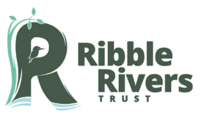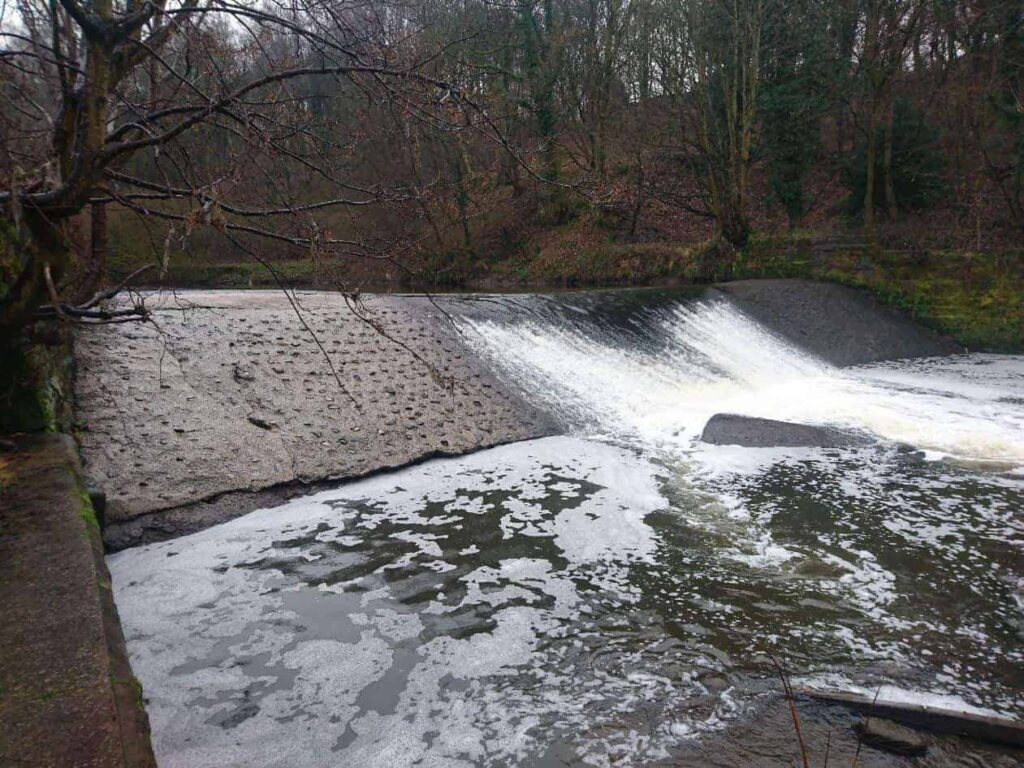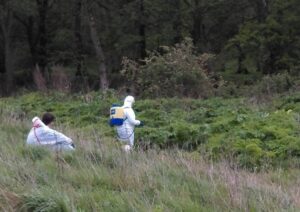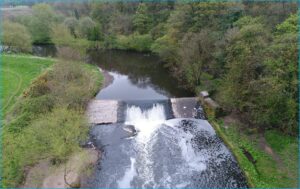 Holland wood weir lies on the River Darwen, close to its confluence with the River Ribble and the limit of the tidal Ribble area. The weir once helped to supply Walton Mill, a corn and flour mill in Walton le Dale, Preston, with water. Although the mill, which is now operated by Massey Bros, still exists only the weir remains, although the route of the mill race is still clear from aerial photographs.
Holland wood weir lies on the River Darwen, close to its confluence with the River Ribble and the limit of the tidal Ribble area. The weir once helped to supply Walton Mill, a corn and flour mill in Walton le Dale, Preston, with water. Although the mill, which is now operated by Massey Bros, still exists only the weir remains, although the route of the mill race is still clear from aerial photographs.
The weir itself is 3.15 meters high, 10 meters long, and 26 meters wide and at the moment there is little opportunity for fish to pass the weir. The weir is also causing other problems, with the creation of incision downstream, and gravel and silt deposition upstream.
In order to improve fish passage and the rivers 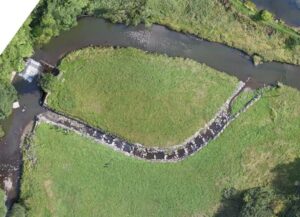
As well as the bypass channel we are tackling the giant hogweed, Himalayan balsam, and Japanese knotweed that is growing in the area, and carrying out engagement activities with Scouts and other local groups.
Work on the fish passage is due to start later this year and has been made possible thanks to funding from the Water Environment Grant, as part of the Ribble Life for Water project.
